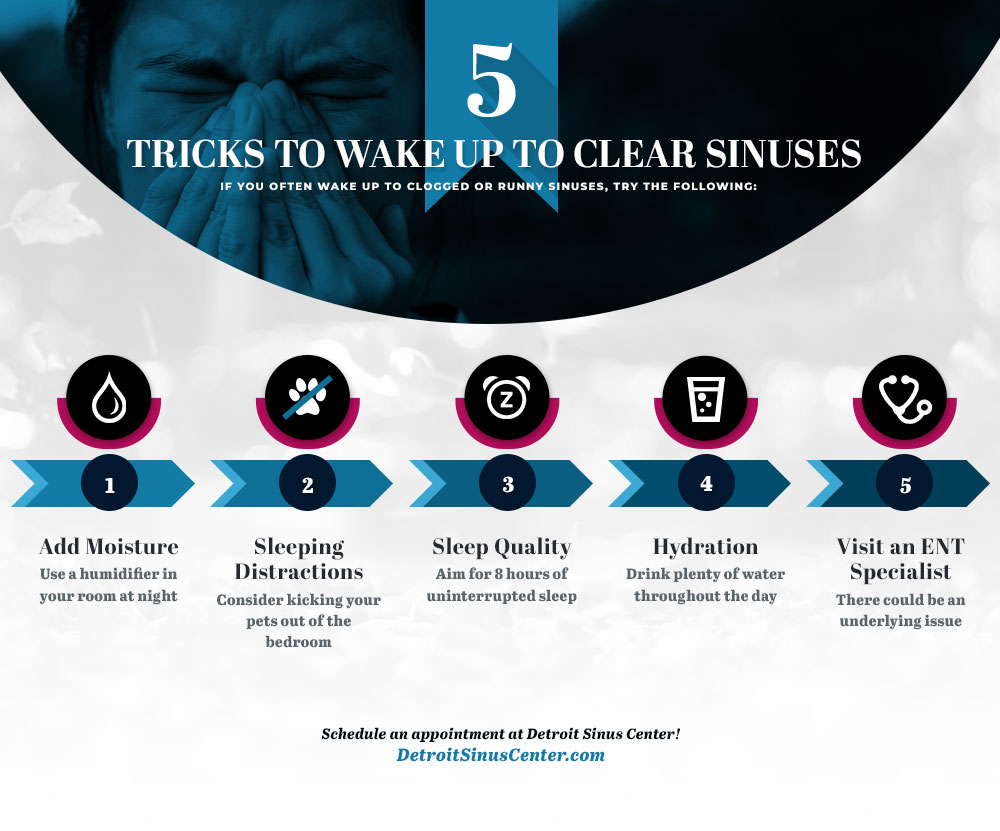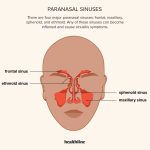Last Updated on 1 year by Francis
If you suffer from sinus infections, you may have noticed that your symptoms seem to get worse at night. Whether it’s the pressure in your head that keeps you up or the thick mucus that makes it difficult to breathe, it can be an uncomfortable experience. In this article, we’ll explore why sinus infections often get worse at night and what you can do to help manage your symptoms.

Contents
Nighttime Sinus Infection Symptoms and Causes
A sinus infection, also known as sinusitis, occurs when the lining of your sinuses become inflamed, leading to congestion, pressure, and pain. Sinus infections develop when the sinuses become blocked, trapping mucus and air, which in turn creates a favorable environment for bacteria to grow. The most common symptom of a sinus infection is a headache, but other symptoms can include facial pressure, a sore throat, and a stuffy nose. The symptoms of a sinus infection are usually worse at night, as the body’s natural cycle of temperature and humidity change.
Changes in Temperature and Humidity
The temperature of the air around us changes throughout the day and night, and this can affect the sinuses. During the day, the air is warmer and more humid, which can help to reduce inflammation and improve drainage. At night, the temperature drops and the air gets dry, which can make the sinuses swell and trap mucus and air, leading to a headache and other symptoms.
Increased Stress Levels
Stress can also play a role in making sinus infection symptoms worse at night. Stress levels tend to be higher at night due to the demands of the day, lack of sleep, and lack of mental stimulation. When you’re stressed, your body produces hormones that can trigger inflammation and congestion, which can in turn worsen your sinus infection symptoms.
Treatment for a Sinus Infection
If you have a sinus infection, there are a few things you can do to reduce your symptoms. First, it’s important to keep your sinuses hydrated by drinking plenty of fluids. This will help thin out mucus and reduce congestion. You can also use a humidifier to add moisture to the air and help reduce inflammation.
Over-the-Counter Medications
There are a variety of over-the-counter medications that can help reduce sinus infection symptoms. Nasal decongestants can help reduce inflammation and thin out mucus, while antihistamines can help reduce nasal congestion. It’s important to talk to your healthcare provider before taking any over-the-counter medications, as some of these medications can interact with other medications you may be taking.
Prescription Medications
If over-the-counter medications aren’t helping, your healthcare provider may prescribe a course of antibiotics to help clear up the infection. Antibiotics can be taken orally or applied directly to the sinuses in the form of a nasal spray. It’s important to take the full course of antibiotics as prescribed by your healthcare provider in order to completely clear up the infection.
Preventing a Sinus Infection
One of the best ways to prevent a sinus infection is to keep your sinuses hydrated. Drink plenty of fluids throughout the day, and use a humidifier to add moisture to the air. It’s also important to keep your sinuses clean by avoiding allergens and irritants such as dust, smoke, and pet dander. If you have seasonal allergies, you should also talk to your healthcare provider about taking an antihistamine to reduce your symptoms.
When to See a Doctor
If your symptoms are severe or don’t improve after a few days, it’s important to see a healthcare provider. You may need to take a course of antibiotics or other medications to help clear up the infection. Your healthcare provider may also recommend a sinus flush or other treatments to help reduce inflammation and improve drainage.
Related Faq
What is a Sinus Infection?
A sinus infection, also known as sinusitis, is an inflammation of the sinuses. It is usually caused by a viral or bacterial infection, but can also be caused by allergies, air pollution, or other conditions. The symptoms of a sinus infection include a stuffy or runny nose, facial pressure or pain, headache, sore throat, and cough.
What Causes a Sinus Infection to Get Worse at Night?
A sinus infection can become worse at night due to the body’s natural circadian rhythms; the body’s natural defense mechanisms are at their lowest during the night and can’t fight off the infection as well. Additionally, the decreased air circulation in the bedroom can cause the sinuses to become congested, leading to an increase in sinus pressure, pain, and inflammation.
How Can I Prevent My Sinus Infection from Getting Worse at Night?
To prevent your sinus infection from getting worse at night, it’s important to keep your bedroom cool and well-ventilated. Additionally, you can use a humidifier to increase the moisture levels in the air and use a saline nasal spray or neti pot to help clear your sinuses. If you’re suffering from allergies, taking an antihistamine at night can also help reduce symptoms.
What Are the Treatments for a Sinus Infection?
Treatment for a sinus infection depends on the cause and severity of the infection. Mild cases may be treated with decongestants, antihistamines, nasal sprays, and nasal irrigation. Severe cases may require antibiotics, nasal steroid sprays, or even surgery. It’s important to talk to your doctor to determine the best treatment for your particular case.
What Are the Complications of a Sinus Infection?
If left untreated, a sinus infection can lead to a variety of complications. These can include vision problems, meningitis, brain abscesses, and even death in severe cases. It’s important to seek medical treatment as soon as possible if you suspect you have a sinus infection.
When Should I See a Doctor for a Sinus Infection?
If you’re experiencing severe symptoms such as high fever, facial swelling, severe pain, or difficulty breathing, it’s important to see a doctor as soon as possible. Additionally, if your symptoms don’t improve after a few days or if they get worse, it’s important to seek medical attention.
Sinus infection can be a troublesome and uncomfortable condition to live with. While many of the symptoms can be disruptive during the day, they can be even worse at night. This is due to a combination of factors, such as an increase in mucus production at night, as well as the fact that lying down can make it harder for your sinuses to drain. Knowing the reason why sinus infection gets worse at night can help you to find ways to reduce the severity of your symptoms, and get a better night’s sleep.





.jpg)


